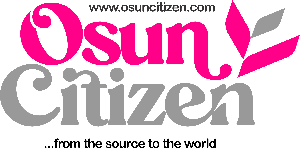TRUMP EXTENDS BAN ON ISSUANCE OF AMERICAN VISAS
The Trump administration is temporarily suspending the entry of certain foreign workers to the United States in a move painted as freeing up jobs while the economy reels from the coronavirus pandemic, despite strong opposition from many businesses.
The presidential proclamation, issued on Monday, will extend a ban on green cards issued outside the US until the end of the year and adds many temporary work visas to the freeze, including the H-1B visas, which permit employers to hire foreign workers with specialized knowledge and are used heavily by technology companies and multinational corporations.
The administration cast the effort as a way to preserve US jobs amid the economic downturn. A senior official who spoke to reporters on condition of anonymity estimated the restrictions will free up to 525,000 jobs for Americans.Trump announces 60-day ban on immigrants seeking permanent status in US
However, major tech companies such as Amazon, Google and Twitter were quick to speak out against the new immigration limits.
Amazon called the move “short-sighted” in a statement, saying that “preventing high skilled professionals from entering the country and contributing to America’s economic recovery puts American’s global competitiveness at risk.”
“Immigration has contributed immensely to America’s economic success, making it a global leader in tech, and also Google the company it is today,” said Sundar Pichai, the chief executive of Google.”
“Disappointed by today’s proclamation – we’ll continue to stand with immigrants and work to expand opportunity for all.”
And Jessica Herrera-Flanigan, the Twitter vice-president for public policy and philanthropy, said: “This proclamation undermines America’s greatest economic asset: its diversity. People from all over the world come here to join our labor force, pay taxes, and contribute to our global competitiveness on the world stage.”
The ban, while temporary, would amount to major restructuring of legal immigration if made permanent, a goal that had eluded the administration before the pandemic. Long-term changes targeting asylum seekers and high-tech workers are also being sought.
Business groups pressed hard to limit the changes, but got little of what they wanted, marking a victory for immigration hardliners as Trump seeks to further solidify their support ahead of the November election.
The ban on new visas applies to H-1B visas, which are widely used by tech workers and their families, H-2B visas for nonagricultural seasonal workers, J-1 visas for cultural exchanges and L-1 visas for managers and other key employees of multinational corporations.
There will be exemptions for food processing workers, which make up about 15% of H-2B visas, the official said. Health care workers assisting with the coronavirus fight will continue to be spared from the green-card freeze, though their exemption will be narrower.
Trump imposed a 60-day ban on green cards issued abroad in April, which was set to expire Monday. That announcement, which largely targeted family members, drew a surprisingly chilly reception from immigration hardliners, who said the president didn’t go far enough. The new steps to include non-immigrant visas went a long way toward appeasing hardliners.
BSA, a group that represents major software companies, urged the administration to reconsider its changes, particularly to the H-1B program, saying they will hinder economic recovery by making it harder to fill critical positions.
“Filling these roles that are more abundant than the number of US employees qualified to fill them means these jobs can be kept in the US,” the group said. “This allows companies based in the US to remain globally competitive, which in turn boosts the US economy, creating jobs for millions of Americans.”
A pro-immigration group with strong Silicon Valley backing, FWD.us, said the moves “will not only hinder efforts to save lives, but will prevent job creation and hurt our economy as our country struggles to recover”.
The freezes on visas issued abroad are designed to take effect immediately. Other changes, including restrictions on work permits for asylum seekers, will go through a formal rule-making process that takes months.
The administration is proposing a new way of awarding H-1B visas, the official said, awarding them by highest salary instead of by lottery.
H-1B visas are capped at 85,000 a year for people with “highly specialized knowledge” and minimum of a bachelor’s degree, often in science, technology, engineering, teaching and accounting. Critics say high-tech companies have used the visas as a tool to outsource jobs to foreigners, replacing Americans.
@ The Gaurdian

